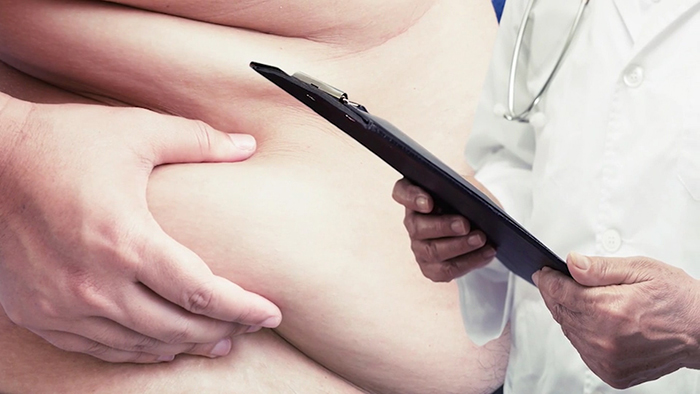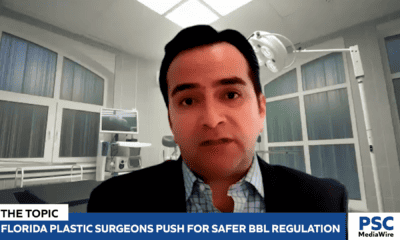As more and more Americans turn to gastric bypass and other bariatric surgeries to lose massive amounts of weight, plastic surgeries to remove the excess skin left behind are growing in numbers. But what about obese patients who want to get different types of plastic surgery before they’ve lost weight? For them and for their surgeons, that gets trickier.
An Increased Risk Factor for Any Surgery
Obese people have a much higher risk of potentially deadly complications following surgery, several recent studies show. Researchers found obese patients had a significantly higher risk of complications after surgery, including heart attacks, wound infections, nerve injuries and urinary tract infections. Plus, some studies show morbidly obese patients (patients more than 100 pounds over their ideal weight) were nearly twice as likely to die as a result of complications following non-cardiac surgery.
The same risks exist in plastic and cosmetic surgeries.
“Patients who are heavier tend to be at greater risk for deep vein thrombosis or blood clots that go up to their lungs,” says Florida board certified plastic surgeon Dr. Mark Pinsky. “So we need to take every possible precaution for that because sometimes that can even be lethal. They also have an increased risk for infection and even scarring that isn’t so good.”
Elective or Not, Plastic Surgery is Surgery
“It’s a challenge because obesity is an increased risk factor for any kind of surgery,” says Austin-based plastic surgeon Dr. Dustin Reid. “And we have to balance that with patients. For instance, patients who need breast reduction surgery may be heavier and we have to talk to them about weight loss and what surgery can obtain. At the same time, it increases the risk of the surgical procedure, so that’s why I think it’s important to talk it over with the patient.”
Researchers say the findings are especially troubling as obesity rates continue to climb in the U.S. According to the Centers for Disease Control, more than 30 percent of American adults are considered obese.
Surgeons Urge Extra Caution Before Surgery
“It’s a balance between what the outcomes are going to be and what the expectations are and what your health risks are,” observes Dr. Camille Cash, a board certified plastic surgery in Houston. “If you’ve got somebody who’s BMI puts them in the super obese category, unless what you’re doing is going to change their medical status or their quality of life or their health, then I think any procedure is better left put off until they’ve at least lost some weight and put them into the overweight category.”
“We get blood work on them to make sure their nutritional panel looks good,” says Dr. Ashley Gordon, another Austin-based board certified plastic surgeon. “Because their skin has been challenged and damaged by the excess weight over the years, they sometimes have trouble with wound healing.
“So we always counsel them about those things, especially things like thigh lifts where they most likely will have wound breakdown. I think if you prepare that for them early, explain to them what you’re going to do when it does happen they handle it much better when it does happen.”
Ultimately, plastic and cosmetic surgery probably won’t be deemed wise for obese patients until they have lost significant amounts of weight. Not only does this aid in the safety of the procedure, but maintains a long-term solution that won’t be affected by massive weight loss, or gain.

















Facebook
Twitter
Instagram
YouTube
RSS